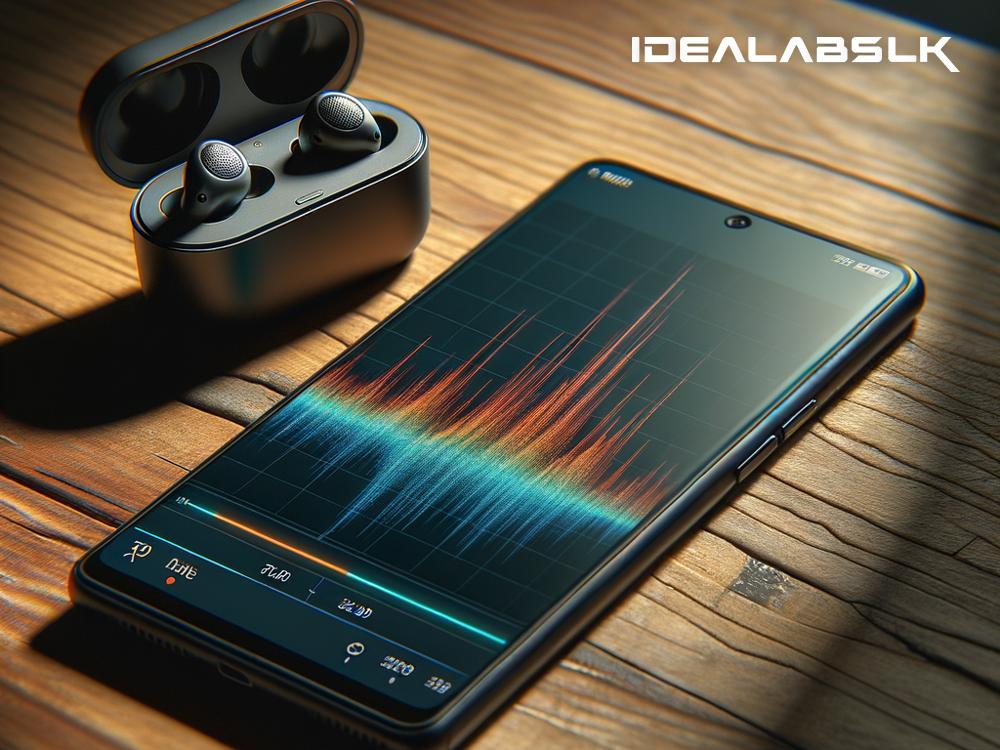How AI Transforms the Way Our Wireless Earbuds Process Signals
In the bustling world of today, wireless earbuds have become more of a necessity than a luxury. They're our companions during workouts, our confidants in crowded places, and sometimes, our gateways to tranquility in chaos. But have you ever wondered what makes these tiny devices so smart and efficient at delivering high-quality sound? The secret sauce is AI, or Artificial Intelligence, and its role in optimizing signal processing.
The Heartbeat of Wireless Earbuds: Signal Processing
Signal processing is the core function that enables our earbuds to receive, interpret, and deliver sound. In simple terms, it's what happens when your favorite song is transmitted from your phone, through the air, and into your ears with clarity and precision. However, the path is littered with potential disruptions - background noise, signal interference, and even the physical movement of the user. This is where AI steps in to transform the listening experience.
The Role of AI in Signal Processing
Artificial Intelligence, in the context of wireless earbuds, acts like a highly intelligent filter and enhancer. It continuously learns and adapts to various environments and user behaviors, optimizing the signal processing in real-time. Here's how AI accomplishes this feat:
1. Noise Cancellation
Imagine you're in a noisy café, trying to listen to a podcast. AI in your earbuds can differentiate between the podcast audio and the background noise. It then suppresses the noise, allowing you to hear the podcast clearly. This process, known as active noise cancellation, is constantly optimized as AI learns from different noise patterns and improves over time.
2. Sound Enhancement
Not all sounds are created equal, and AI knows this. Based on the specifics of the audio signal (like music genre or speaker's voice), AI can enhance certain frequencies, making the sound more pleasant and clearer. This personalized sound enhancement ensures that the bass in your music is punchy enough or that a voice call sounds crisp, even in less-than-ideal conditions.
3. Echo Reduction
Echo can be a particularly annoying issue during calls. AI tackles this by identifying the echo’s signature in the signal and removing it before it reaches your ears. This ensures that your calls are clear without the irritating repetition of sounds.
4. Battery Life Optimization
Processing signals is a task that consumes power, and in a tiny device like an earbud, battery life is precious. AI optimizes the signal processing algorithms to be as energy-efficient as possible. This means your earbuds can last longer on a single charge, ensuring that your soundtrack continues uninterrupted.
5. Real-time Adaptation
Perhaps the most impressive aspect of AI in signal processing is its ability to adapt in real-time. Whether you're transitioning from a quiet room to a busy street, or from listening to a podcast to answering a phone call, AI adjusts the signal processing parameters on the fly. This seamless adaptation ensures consistent audio quality, irrespective of the changing environments or use cases.
Bringing It All Together
The integration of AI into wireless earbuds represents a leap forward in personal audio technology. By optimizing signal processing, AI not only improves the sound quality but also enhances the overall user experience. It's like having a tiny sound engineer living in your earbuds, dedicated to providing you with the best possible auditory experience.
Looking Ahead
As AI technology continues to evolve, we can expect even more innovative features in wireless earbuds. From even more personalized sound profiles based on user preferences and hearing capabilities to gesture-based controls and beyond, the possibilities are limitless. The future of wireless earbuds is bright, and it's powered by AI.
Final Thoughts
The next time you pop in your wireless earbuds and drown out the world with your favorite tunes, take a moment to appreciate the intricate dance of technology happening inside those tiny devices. AI-driven signal processing is a game-changer, ensuring that whether you're in the midst of a noisy crowd or the quiet corner of a library, your listening experience remains pristine. AI is not just transforming our world; it's enhancing the very way we experience it, one beat at a time.

